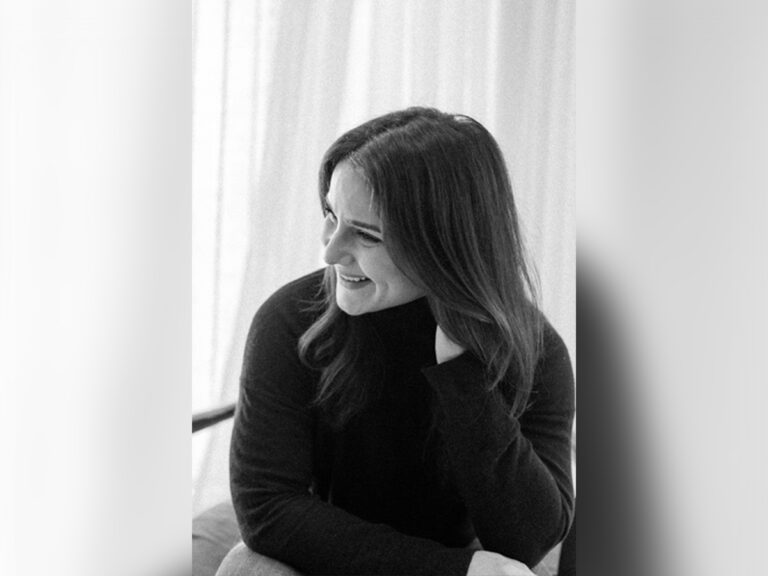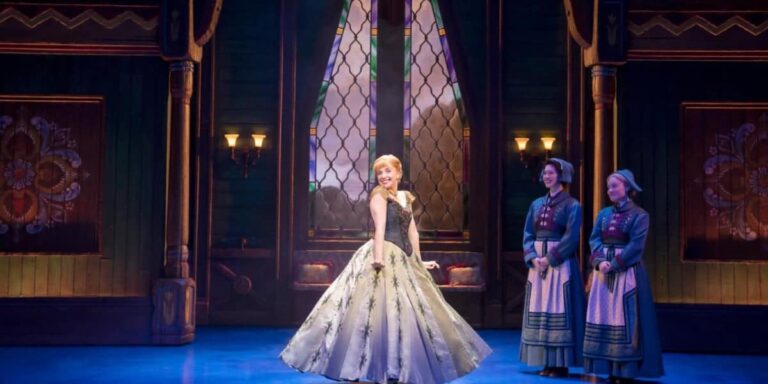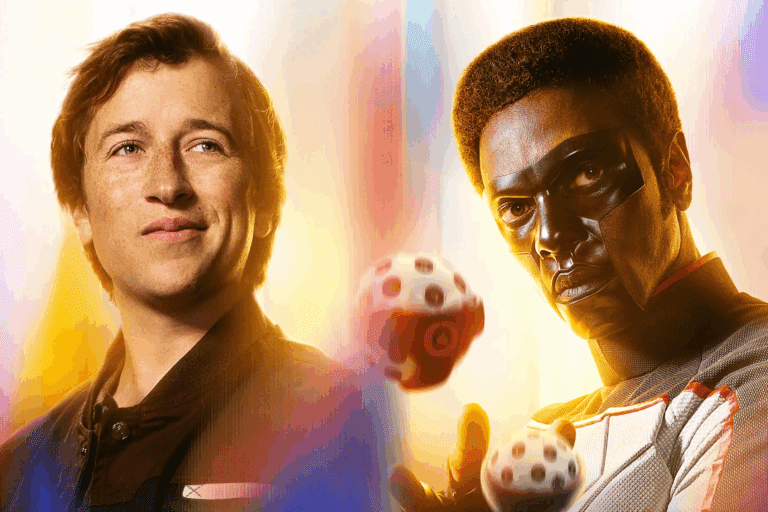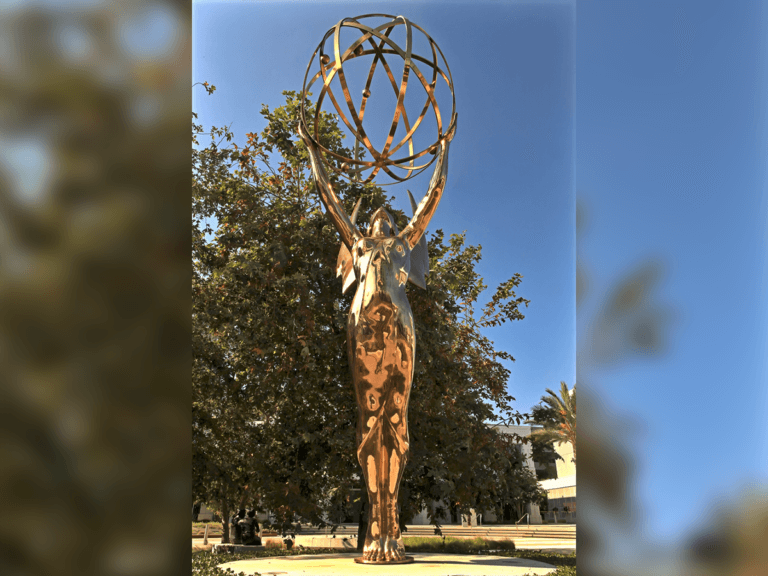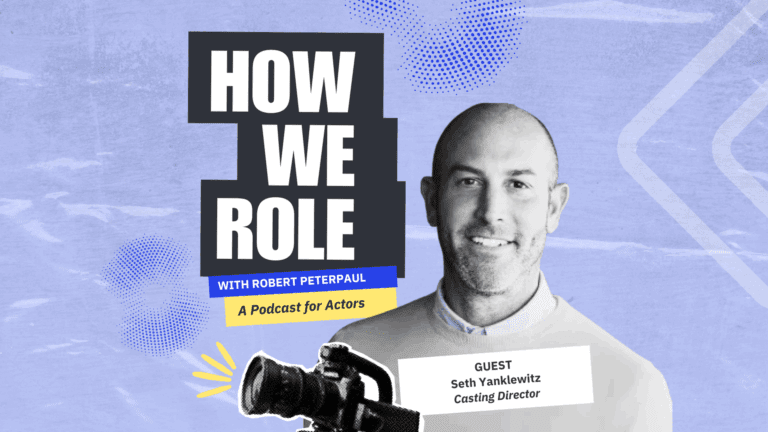If we can agree that casting is still a filmmaking craft that is not recognized enough, then we can almost certainly also agree that extras casting gets even less deference. Although principal casting puts the primary actors into a project’s roles, extras casting provides the production with its atmosphere. Its texture. Imagine a city sidewalk without them or a basketball gymnasium. That’s where the team behind Alessi Hartigan Casting comes in.
Sande Alessi and Shayne Hartigan are among the most sought-after casting directors in Hollywood, and while they also work with principals, the simple fact is that if you’re making a movie or TV show in New Mexico, odds are you’ll be working with them. They are so involved there, in fact, that when the New Mexico Film Commission was drawing up its standards for extras, they asked Alessi and Hartigan to write them.
The pair has worked on hundreds of productions around the world, and are also at the forefront of doing work with the indigenous community, as in the recent Netflix hit Rez Ball. They spoke to us from their respective offices, Alessi in L.A., and Hartigan in Albuquerque.
Insights: Lessons from Sande Alessi and Shayne Hartigan
- Utilize your cultural background for roles needing authenticity and match your unique look or skills with specific casting calls.
- Start as an extra to learn film industry basics and look for acting opportunities outside of traditional locations like New York or LA.
- Build strong relationships with casting directors and crew members.
How did you get into casting in the first place?
Shayne Hartigan: I grew up in the industry. My parents both do practical special effects. I wanted to be an actor and had my sights set on going to NYU. My dad was working on Hawaii Five-0, and the casting director was like, “hey, if he wants to come give me some free labor for the summer, I’ll write him a college recommendation.” That was when I was 14, and I interned on season two. I really enjoyed it, so I went back and interned again over the next summer in Hawaii.
The third year, I turned 16, and they had a turnover in their casting department, and the casting director I was interning under was like, “hey, look, I need somebody that can wrangle our extras casting department for the next few weeks while we get somebody trained up and on board. If we put you on payroll, could you help transition us?” Well, I was not going to say no, so I got my college recommendation and got into NYU.
Obviously, you didn’t become an actor.
SH: Nope. I went to NYU for a year and realized I didn’t want to be an actor. I got through a year, a terrible winter and then was like, “you know what? I’m done with the East Coast too.” I called the casting director on Five-0 and said, “hey, if I came back, do you have a job for me?” She said, “no, but we could figure something out.”
I went back and ended up working full time as their extras casting assistant, oddly enough, and then an opportunity fell in my lap to work with one of the other casting directors on the island and went over and worked with her on Mike and Dave Need Wedding Dates, which was being shot out there at the time.
Without sounding icky, it sounds to me like you were groomed for casting.
SH: Wow, that does sound icky when you say it, but yeah, probably. (Laughs)
I was thrust into that and kind of just ran with it. You know, in a roundabout way, the reason I fell in love with casting initially, and it’s a little more self-serving than anything, but I loved being able to give people that once-in-a-lifetime opportunity.
How did you hook up with Sande?
SH: She was coming out to the island to do Kong: Skull Island. I ended up getting hired semi-full time as they’re casting PA on Kong, and after they moved people from Oahu to Australia back to Oahu, we went from having just standards and photo doubles to all of a sudden, 2,500 extras.
They’d already sent Sande home, so it was just me as the PA, sending stand-ins to set. They were frantic. “We need to get 2,500 extras cast. It’s all 1970s fittings. We’re recreating Vietnam, Washington, DC, all these things at once.” The AD said, “can you guys pull this off?” I was like, “yeah, no, no, we got it. Don’t worry, it’s gonna be great.”
Sande then said, “if I was able to find your support, would you want to try and just run the show?” So, we just hunkered down and did it. Sande called me after and said, “I’ve never had somebody save my ass the way you just did. Do you want to just keep working for me?” I was 20. I said, “hell yes, of course! That means I don’t have to go back to college, right?” That set us off on our partnership.
[Sande joins the conversation.]
Sande Alessi: Hi!
Welcome! Shayne was telling me how you two started working together, and I was about to ask him about extras casting. How did that come about that you’re doing so much of that work?
SA: I started doing extras casting because I got into the business as an extra to learn the business. Honestly, for us, if we were doing principal casting, I don’t think we could go around the whole world like we are now. We both do principal casting, but it’s not as lucrative.
SH: What we’ve seen, especially these days, is they’re not leaning on principal casting to create these specialty looks. For instance, a lot of these Indigenous projects that we work on, like Rez Ball, we work closely with Angelique Midthunder. She’s casting five Indigenous actors to play basketball and we’re getting 500 Indigenous people to fill the stands. It’s on us to make it look like we’re on the res and to create these worlds on each show that we go into. I think that’s what we both enjoy the most out of it because we enjoy creating that world and giving that authenticity to every show we work on.
Since you mentioned the indigenous casting, was that a result of spending so much time in Hawaii?
SH: Hawaii plays a big part of it. Right after Kong, we came out to New Mexico for 12 Strong. They needed us to find real Afghan and Iraqi refugees in the state, and nobody else locally wanted to do the job. We got the call: “hey, can you guys come out and help us find these communities?” That’s something that Sande has always been an expert at, finding these hard-to-find communities, making the connections and being able to bring jobs to those communities.
Coming from Hawaii, where we’re dealing strictly with the Indigenous population and Hawaiians there, then coming over to New Mexico and dealing with Iraqis and Afghanis who were here as refugees, we decided, “okay, let’s set roots in New Mexico.” We have the culture and community on both sides.
We want to be a part of growing that community. It was a natural progression because New Mexico is so heavily indigenous and Native American. We started reaching out to the Pueblos and saying, “hey, what can we do to help your community? What can we do to help make sure you guys have access to these casting bonuses, for these casting calls?” We work closely with Angelique. She knows that we have each other’s interests at heart and that we’re going to go out to the community and find the people that need to retell that story.
So often when I ask people what it is about casting that attracts them, they talk about that combination of left and right brain, creativity, and organization. This feels like that to the nth degree because it’s not just a couple of roles you’re casting. You’re painting on a much larger canvas.
SH: I agree with that. I love a lot of the principal cast directors out there, but it is a conversation we’ve had where principal casting comes on for three or four weeks on most shows. They cast the 10 to 15 people they need, and they’re gone. For us in background casting, on 99% of our shows, we’re on for the same four weeks as principal casting and then the entire length of the film. We’re here to make sure that that texture and layer are always there.
I am curious about how people receive you when you approach them because I’m assuming you work with a lot of non-actors.
SH: Always.
SA: I don’t know if it sounds like we’re giving away our secrets, but we’re able to pop up anywhere because of our technology, and that helps us grow our company. With 12 Strong, because we went in and had to cast the net so wide and dig into the community to find those ethnicities, we’re also pulling in the population, not just the Afghans.
After we finished that film, we left New Mexico with a big fat database that was bigger than any in New Mexico. We look for the people that have never done this, or never even thought about doing it. Those are the ones we want and their families.
I would think that there is something especially rewarding about doing this kind of work, as opposed to the principles where, while you’re still making dreams come true, it’s on a different scale. Is that accurate?
SA: Yeah, I think so. A lot of people have this as a dream or a goal, and they never pursue it. So, it’s really fun to grab somebody. Sometimes we have to talk them into coming in, but when they get a job, it’s often their claim to fame, where they had this special role.
SH: In doing this, I think selfishly, we gain these relationships that we carry through the rest of our lives. As opposed to people who want to do this and seek it out, we’re going and finding them. That’s where we like to build that relationship. It’s very community-based, to make sure people have a good time.
We go in with a set of standards, all of our extras will be treated with respect and dignity, and that way people want to keep coming back. That’s why we keep doing it because people enjoy it and they like what we do, but we also take care of them. It’s a family for us.
Ready to find your next role with Casting Networks? Sign up for a free trial today!
You may also like:


